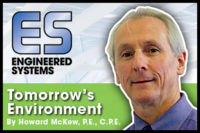People are seeing firsthand how individuals can change the world to their advantage or to the advantage of the masses. There are very few individuals alive today who remember the evils that occurred back in the 1900s that eventually led to World Wars I and II. Since that time, we’ve learned that history can repeat itself, and we are seeing a 21st-century version of how world conflicts have evolved. Fortunately, this time around, it seems as though countries in the free world are coming together and uniting sooner. One can see many embracing “positivity," even if it is lacking in perfection.
Recently, I saw a TV news clip showing a small Ukrainian boy, about the age of my grandson, walking alone in tears, with no family or friends to comfort him. It reminded me of the iconic photograph of a young naked child running from firebombs exploding in the background in Vietnam. Both situations epitomize the cruelty of war, and one can wonder what drives individuals to create a legacy based on the negativity that shaped their lives.
In America, we've witnessed an abundance of “negativity” these past few years through the worldwide pandemic. Our freedom of speech has allowed pessimistic individuals to say what they believe (or don’t believe) about the pandemic without fear of being incarcerated. Meanwhile, in Russia, individuals are being removed from society because they are saying what they believe.
We have observed baseless, negative statements surrounding an attempt to steal a presidential election, which, ultimately, may undermine future elections. Our ability, as Americans, to trust others is disintegrating because of these black-and-white points-of-views and finger-pointing.
Figuratively, HVAC industry issues and concerns don’t match up to the worldly issues, but, then again, maybe they do. After all, the HVAC industry is affected by the world economy, its environment, and, of course, global warming.
With all that said, we're in dire need of positive, compassionate contributors. We desperately desire mentors who will lead by example and leave a productive legacy.
While the instances mentioned in this column barely scratch the surface of the world's negativity, they do show that, in many cases, it's easy to be negative. After all, when criticizing others, one is basically assigning blame often without offering a positive solution.
In the HVAC industry, this reminds me of a design-build (D-B) firm I worked for years ago that routinely approached a problem on a project by, first and foremost, dedicating significant time and effort toward identifying who was the culprit who created the alleged concern. The project team often spun its wheels, refusing to move forward with a solution, remaining in a state of negative neutrality. To this dilemma, I would respond with sarcastic jest, “Before you resolve the problem, you will need to find this bad guy and kill him/her.”
Once the company identified its culprit -- or was at least satisfied in determining who they thought could have done this, they could only then proceed with actually solving the problem. Over time, we were able to weed out such pessimistic individuals and, over time, worked hard to evolve the company's brass into positive thinkers.
Among all of life's challenges, we must remain positive. Through everything we do, we need more problem-solvers to replace the problem-makers.





